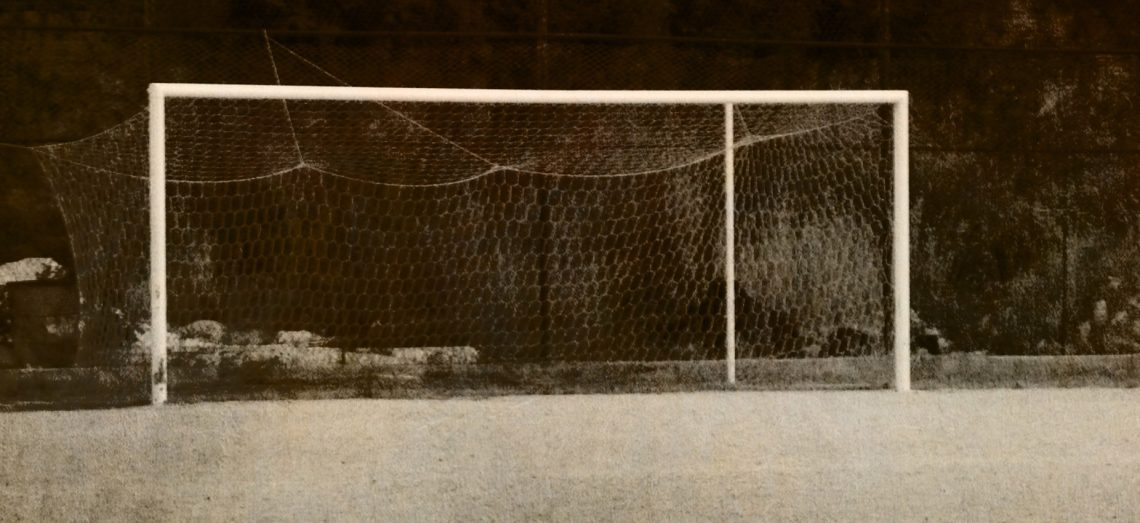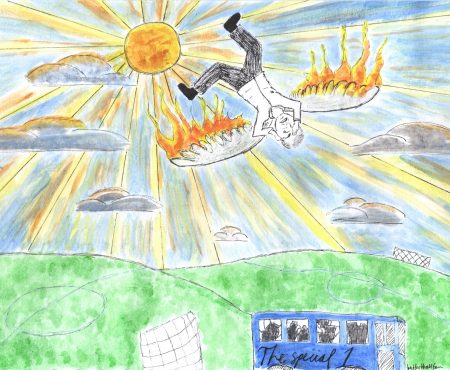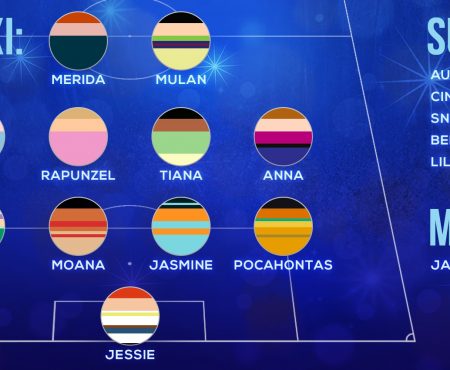Content Warning: This article discusses potentially challenging subjects such as suicide and self-harm
I’ve stared at the blank screen enough to know that when the words dry up, I need new inspiration. I’ve been depressed enough to know that when the almost-catatonic state hits, no matter how many small goals or tiny victories I achieve will make me feel a thing. We’ve had brilliant pieces about how fandom has helped people through struggles or how they found their way back. While I felt like those pieces were applicable to me, there is something deeper in the relation of my mental illness and football.
I was fifteen when Robert Enke lost his battle with depression. I remember, vividly, the pictures of the funeral, just a few months before the 2010 World Cup. Suicide wasn’t a topic people spoke openly about at the time. Even now it carries a distinct stigma. I remember the queries—“How could he feel that bad?”—alongside more incendiary and hurtful remarks. It was the forum days of the internet, after all, and I hadn’t learned to never, ever read the comments.

Robert Enke’s shirt signed by his teammates in Olympic and Sport Museum in Cologne
Even ten years later, it’s still difficult to admit that I was facing my own battle at the time. I had chronic pain, and doctors told me it was psychosomatic. Despite the tests they ran revealing I had lower back issues, they told me that it was my brain making up the near-constant pain I was feeling. Psychosomatic pain is more nuanced than that, but as a teenager, “imaginary” and “made up” were the words I heard and understood. Nobody at my school had talked about any type of mental health issues, and the doctors—despite their diagnosis—didn’t even recommend therapy as a way to relieve the pain. I was in middle school, so how bad could it be?
Bad. I don’t need to detail my attempts at self-harm because, frankly, the details won’t help anyone who is struggling. Yet the basics show my own struggle. My first attempt was when I was thirteen, not long after learning my pain was made up, that my mind was tricking me. My most recent was in June of 2019. Part of me always goes back to my first reaction to Robert Enke’s death on November 10, 2009. If he couldn’t find a way through, how could I? He was Hannover 96’s starting goalkeeper and captain and in contention for Germany’s number one spot at the upcoming World Cup. His previous clubs included Borussia Mönchengladbach, Benfica, Barcelona, and Fenerbahçe. He was between the sticks for Hannover at the Niedersachsenstadion two days before his death. From the outside looking in, everything seemed fine. He was being treated for his depression, yet he still lost his battle at what seemed to be a random moment. The world was in shock. The players, the coaches, the fans. They all packed the stadium, most in tears or near it. He had played in that stadium so recently. He was so close to the World Cup.
The scary thing about depression, particularly recurrent depression with suicidal ideation, is that your current situation doesn’t matter. Everything in your life can be great. I had a 4.0 in the honors college at university, was the leader of multiple organizations, and still had days where I couldn’t leave my room. I sat in the dark and stared at the wall. I had the opportunity to study in Germany, something I had dreamed of for years, and yet there were times I would end up crying in the woods near my apartment because the constant pounding wouldn’t stop. The repetitious voice in my brain rarely takes a day off, and when I’m unlucky, it doesn’t even stop screaming negative—even suicidal—thoughts for just one minute.
Enke’s wife Teresa created the Robert Enke Foundation following his death to raise awareness of mental health issues and decrease the stigma of depression. One major hurdle we still face is the idea that a person’s situation is what makes them feel depressed.
“What is wrong in your life that makes you want to kill yourself?”
That was one of the first questions I was asked during an inpatient visit. I was still in the emergency department. The asker wasn’t even a doctor; it was someone from the billing department. Those comments are one step away from, “Suicide is a permanent solution to a temporary problem.” As Patrick Roche said, “These are rarely temporary problems.”

Robert Enke’s gloves in Olympic and Sport Museum in Cologne
Depression’s best friend is silence. It’s the silence of being told not to reveal your darkness, because admitting to your parents that depression, not a cold, kept you from work. Gender roles, throughout the spectrum, increase the silence because you are either supposed to be strong or you should take care of issues yourself. The belief, hemmed by both chemical and cultural influence, that asking for help makes you weak silences your ability to seek help. The silence of trying to hold together his public life was part of Robert Enke’s struggle.
As part of the incredible community of Unusual Efforts, I was focused on the Women’s World Cup this summer. I made a drinking game to use while watching the tournament. While I made jokes about Twitter kerfuffles, I was making a plan about how to end my life. Alongside drafting tweets, I was drafting a suicide note. I didn’t think of going public with my struggles, or even leaning on my fellow Jellyfish (Kirsten, Jessie, and Sonja—joke to be explained later, when we remember it) to help; the silence continued to consume me. I was at a point where I doubted anyone would even notice my absence, because silence is just that. It would have been easy to just disappear, to finally succumb to the words my brain had been screaming for years.
The strongest thing I’ve ever done was walking myself into the hospital, admitting that I had a plan, and asking for help. The tears I shed alone in my room—in paper scrubs with no strings because asking for help meant a lot of restrictions—were just the perspiration of my fight. The funny thing about being in a solitary room with no distractions is that it forced me to confront the very reason I was there. I couldn’t hide behind absentminded television watching, couldn’t pick up a book to try to shut off part of my brain, couldn’t listen to true crime podcasts to attempt to give my brain a puzzle to solve rather than think about how to end everything. The silent crying and the realization that this is real and I’m here and there is a reason, it was all part of building myself back up. My experiences in the hospital, for better or worse, gave me the chance to evaluate what lurked in the silence I’d been attempting to avoid.
When I have time to logically evaluate it, I realize there is something wrong with my brain chemistry. There is something that makes me feel nothing when Timo Werner scores a screamer or when my team makes it farther in the Champion’s League than ever in club history. There is so much that I should be excited about this season, but I’m struggling to find the energy to even locate a stream for games. My inpatient stay certainly didn’t fix everything. It can’t make me feel things I don’t feel. But with every small step, every joke about Sabitzer’s hair or staunch defense of Julian Nagelsmann’s fashion, I know I am taking back part of myself that depression stole. I silently let it winnow my social circle down, demolish my career plans, and almost take me out. I’m not silent anymore. I can’t be, because that means letting depression win.
I am terrified of writing this piece, of the vulnerability it exposes. What could it mean for my career? Why am I telling anyone this? Why would anyone care? The truth is, as I sat in the room alone, I realized it wasn’t only my depression that got me there. It was silence. The silence after I’d respond with “I’m fine” to every question. The silence of trying to be responsible and in control of my life. The silence of my fight almost killed me.
I’m not over it. I haven’t healed. Honestly I’m not sure if I will or if I can. But I am managing, and part of that is being open with my struggle. If I hadn’t been taught that “suicide” is a dirty word or that depression is just sadness you need to get over, maybe I wouldn’t have been in that room. After Enke’s death, his wife admitted he was first diagnosed with depression in 2002, seven years before he died. His two-year-old daughter Lara passed away in 2006, and he and his wife had adopted their daughter Leila in 2009. Teresa confessed her husband was scared that they would lose their daughter if his battle with depression became public. In most retrospectives on his life, we learn that silence was one of the biggest factors in Enke’s death. Silence—for football players to actors to myself—can be one of the hardest things to break. Through the #Effortista community, however, I’ve learned that it is okay to not be okay. Being honest about your struggles may help others who feel like they’re drowning, and I feel lucky to be part of this community where silence often results in others checking in on the quiet ones, making it easy to be open and honest about mental health and its effects.







